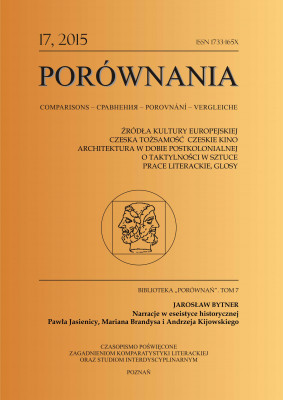The Kabballah Philosophy as the Core of the Plot Dimension in S. An-sky’s Drama Between Two Worlds (The Dybbuk)
The article presented above is an attempt to philosophically re-interpret a famous play Dybbuk of S. An-sky (S. Z. Rapoport), by searching the drama’s real origins: the thought of the Jewish Kabbalah, reborn on Polish lands in the 18th century thanks to the founders of Hassidism. The Lurianic theosophy and theurgy, as well as the Kabbalistic epistemological assumptions – connected with the possibility of perceiving reality in its different dimensions – form, as it seems, the basis of the play’s plot. There can also easily be found in Ansky’s drama many other Kabbalistic doctrines and legends, for example, the belief both in the soul transgression and the divine origin of evil, gematria, magical rituals (the practical Kabbalah). On the other hand, the structural dominant of Rapoport’s text is an exclusively Hassidic concept of a dybbuk, i. e. the soul of a dead person, who exists ‘between worlds’, in another person’s body. In the article, the connection between the Kabbalistic thought and the philosophy of Plato and that of Neoplatonist thinkers is also demonstrated. The analysis’ conclusion allows to define An-sky’s play as a philosophical drama, which cannot be understood at all, if one does not know the doctrines elaborated by the Jewish mystics during centuries.
| Article Title | Type | Size |
|---|---|---|
| 14 Kornacka | [pdf] | [364 KB] |
